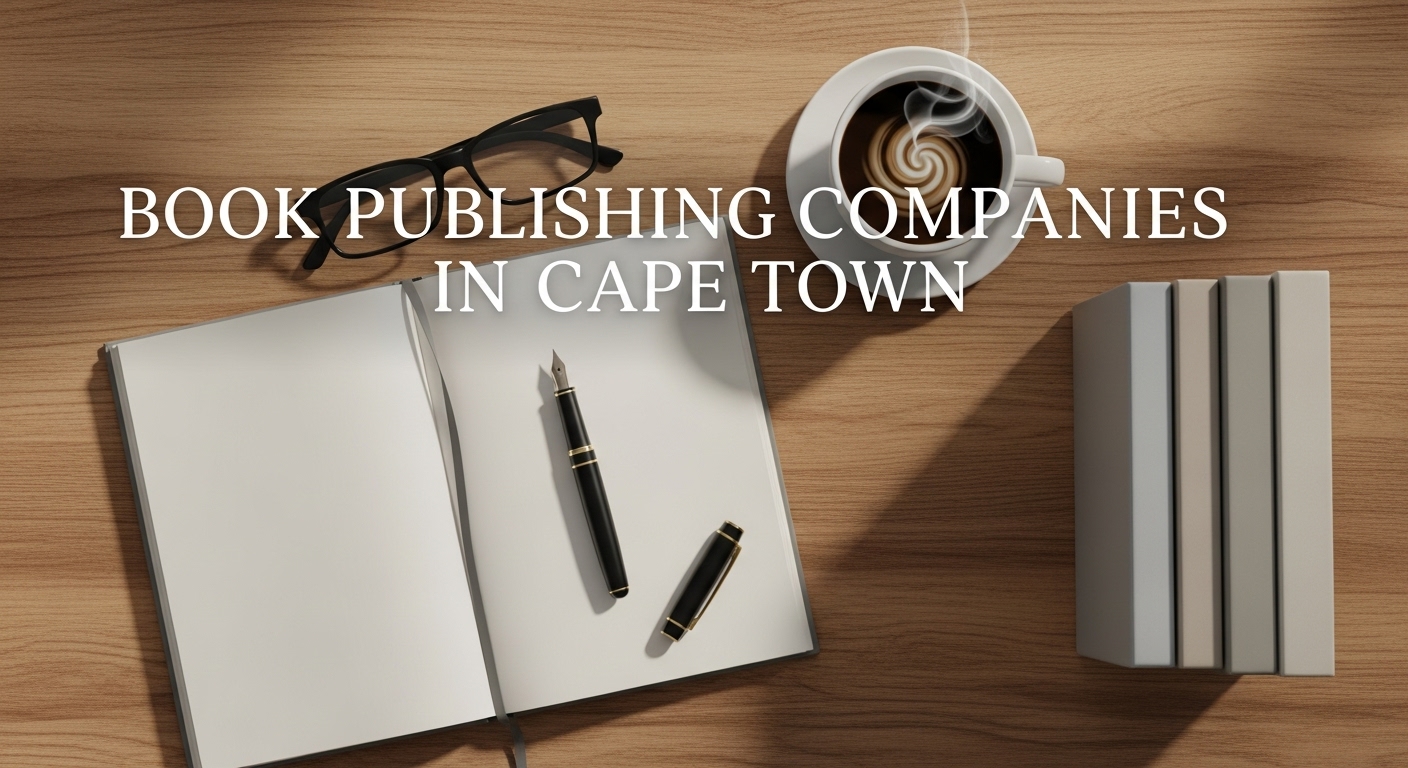
Cape Town has always been a city of stories — a meeting point of cultures, languages, and creative expression. In 2025, it continues to thrive as one of South Africa’s most dynamic publishing centers, where tradition meets innovation. From established literary institutions to fresh independent presses and forward-thinking digital publishers, the city offers endless opportunities for writers to bring their stories to life. Whether you’re crafting a novel, memoir, academic text, or children’s tale, Cape Town’s publishing landscape provides a rich mix of expertise, creativity, and collaboration.
1. Barnett Ghostwriting
Barnett Ghostwriting operates as a full-service publishing and writing agency known for helping authors turn rough ideas into professional manuscripts. With a focus on confidentiality and collaboration, the company provides assistance at every stage of the publishing journey, from concept creation to completed book. It bridges the gap between writing and publishing, guiding individuals who want their voices represented clearly and professionally.
- Focuses on ghostwritten memoirs, business books, and narrative non-fiction.
- Provides teams of writers, editors, and researchers to develop manuscripts.
- Works with professionals, executives, and individuals with compelling stories.
- Ensures projects are completed on time with consistent quality.
- Known for strong narrative flow and professional storytelling expertise.
2. Tafelberg Publishing (Cape Town Imprint)
Tafelberg Publishing represents a cornerstone of South Africa’s literary landscape. Its Cape Town operations focus on nurturing local voices and producing works that celebrate cultural, linguistic, and regional diversity. The company publishes both English and Afrikaans titles, maintaining a strong presence in educational and literary markets.
- Publishes literary fiction, children’s books, and regional non-fiction.
- Provides experienced editors and design professionals for each manuscript.
- Distributes books nationwide with visibility in schools and libraries.
- Encourages authors with stories grounded in South African identity.
- Known for balancing literary quality with commercial accessibility.
3. Penguin Random House South Africa (Cape Town Office)
Penguin Random House South Africa combines international reach with local expertise. Its Cape Town branch supports authors with a high standard of editorial and production quality while focusing on stories that resonate with both regional and global audiences. The imprint under PRH produces fiction, non-fiction, and children’s titles with a strong marketing backbone.
- Publishes literary fiction, memoirs, and general non-fiction.
- Offers professional editorial direction and strong marketing resources.
- Ensures high production standards for print and digital editions.
- Works closely with authors who have clear voices and strong concepts.
- Provides national distribution and potential for global exposure.
4. Jonathan Ball Publishers (Cape Town Presence)
Jonathan Ball is known for its balance between commercial publishing and intellectual depth. Its Cape Town presence has strengthened ties with writers producing both fiction and non-fiction that appeal to broad readerships. The company values books that inform, entertain, and provoke thought while maintaining accessibility.
- Focuses on crime fiction, memoirs, political works, and lifestyle titles.
- Provides experienced editors to refine manuscripts and market appeal.
- Supports authors with publicity and bookstore visibility.
- Encourages proposals from writers with topical or commercial themes.
- Recognized for balancing editorial excellence with wide readership potential.
5. Umuzi (Independent Literary Imprint)
Umuzi has built a reputation for curating innovative, thought-provoking literature. The imprint welcomes experimental voices, debut authors, and works that challenge conventions. Its team focuses on artistic integrity, narrative quality, and the cultural impact of its titles.
- Publishes literary fiction, essays, and hybrid creative works.
- Works closely with writers to develop style and structure.
- Encourages submissions that experiment with storytelling form.
- Supports authors through workshops and mentorships.
- Known for publishing books that push artistic and social boundaries.
6. Struik Lifestyle
Struik Lifestyle remains a leading name in the field of lifestyle, travel, and illustrated publishing. Based in Cape Town, the publisher specializes in creating visually appealing books that capture the essence of South Africa’s culture, cuisine, and landscapes. Their approach combines beautiful design with practical, engaging content.
- Publishes cookbooks, gardening guides, and travel titles.
- Collaborates with photographers, chefs, and lifestyle experts.
- Ensures high-quality visuals and durable book design.
- Appeals to both local and international readers interested in African culture.
- Known for blending practical knowledge with aesthetic presentation.
7. Jacana Media (Purpose-Driven Publishing)
Jacana Media’s Cape Town branch is committed to producing books that provoke thought and spark dialogue about social issues. It focuses on works that promote awareness and engage critically with the realities of contemporary South Africa. Its catalogue includes academic, political, and cultural titles that carry both national and educational value.
- Publishes investigative journalism, history, and socio-political works.
- Works with researchers and journalists to ensure factual accuracy.
- Connects authors to academic and community networks.
- Emphasizes books that contribute to national discussions and reform.
- Recognized for its commitment to responsible, relevant publishing.
8. Independent Cape Town Press
Independent publishers play a crucial role in maintaining the diversity of Cape Town’s literary culture. Many small presses publish limited annual lists, focusing on distinctive voices, high-quality editing, and meaningful author relationships. These companies often support debut authors or projects that may not fit the criteria of larger houses.
- Publishes debut fiction, poetry, and creative non-fiction.
- Offers personalized editorial feedback and developmental editing.
- Promotes authors through intimate book launches and local events.
- Collaborates with bookstores and literary festivals.
- Known for championing literary risk-takers and emerging voices.
9. Academic and Educational Publishers
Cape Town is home to several academic publishers associated with local universities and research institutions. These organizations serve the educational community by producing textbooks, scholarly monographs, and research-based works. Their editorial processes emphasize accuracy, depth, and academic contribution.
- Publishes textbooks, research monographs, and scholarly studies.
- Works closely with university faculties and researchers.
- Maintains rigorous peer-review standards.
- Ensures alignment with educational curricula.
- Known for intellectual credibility and specialized editorial teams.
10. Digital and Hybrid Publishers (Cape Town-Based)
New-generation hybrid publishers are reshaping Cape Town’s literary scene by merging traditional publishing with digital technology. These companies empower authors to maintain creative control while benefiting from professional editing and design services. The hybrid model appeals to writers seeking faster publication and flexible ownership terms.
- Publishes e-books, audiobooks, and print-on-demand editions.
- Offers customizable service packages for authors.
- Provides transparency in pricing and production timelines.
- Encourages author participation in marketing and distribution.
- Known for innovation, accessibility, and efficiency in publishing.
The Evolving Literary Scene in Cape Town
Cape Town’s literary environment in 2025 demonstrates the city’s role as a crossroads of tradition and innovation. From major houses with global connections to indie presses and digital innovators, the publishing ecosystem supports every kind of writer. Authors can find the right match for their goals—whether literary prestige, social commentary, or commercial reach.
The diversity of publishers ensures that new voices continue to emerge, contributing to South Africa’s cultural identity and global literary presence. Each publisher offers a unique pathway: large houses bring reach and structure, independent presses bring intimacy and creativity, and digital publishers bring flexibility and speed. Together, they form a complete publishing landscape where talent, discipline, and authenticity matter most.
Tips for Authors Submitting in 2025
- Research each publisher’s recent catalogue to ensure genre compatibility.
- Prepare a professional query letter and a well-edited sample.
- For fiction, focus on strong openings and compelling character arcs.
- For non-fiction, include a clear market rationale and author bio.
- Understand contractual terms before signing, especially for digital rights.
Conclusion
In 2025, Cape Town’s publishing industry reflects the city’s unique combination of tradition and transformation. From global giants like Penguin Random House to boutique presses and digital innovators, each company adds a vital thread to South Africa’s literary fabric. Authors can find opportunities that suit every creative goal—whether they seek professional editorial guidance, cultural authenticity, or full publishing control.
Choosing the right publisher is about more than simply printing a book; it’s about finding the right partnership to bring your vision to readers. Cape Town remains one of Africa’s strongest creative centers because it values both artistry and accessibility. The publishing houses listed above embody that balance, ensuring that great stories continue to reach audiences at home and abroad.
FAQs
Q: How can I make my book a bestseller?
Focus on quality storytelling, professional editing, and targeted marketing campaigns.
Q: How do I make my book popular in South Africa?
Engage with local readers through events, social media, and regional press exposure.
Q: Do Cape Town publishers accept new authors?
Yes, many independent and mid-sized publishers actively welcome debut submissions.
Q: Should I consider digital publishing in Cape Town?
Absolutely—digital and hybrid publishers offer faster publication and wider reach.
Q: How long does it take to publish a book here?
The timeline ranges from six months to over a year, depending on editing and production needs.





